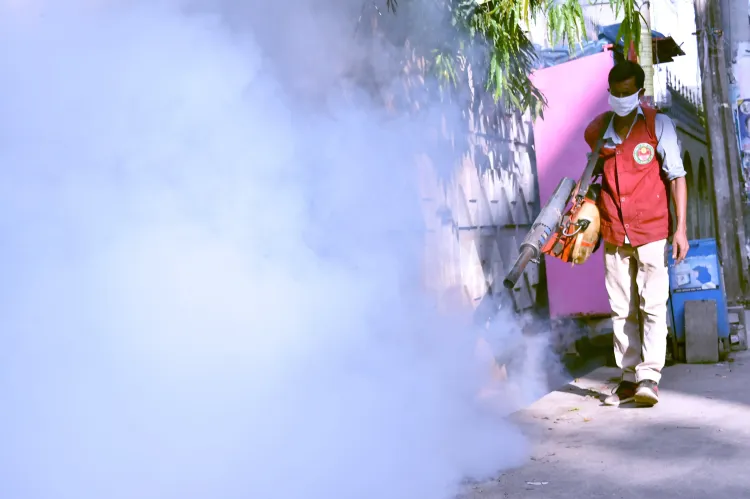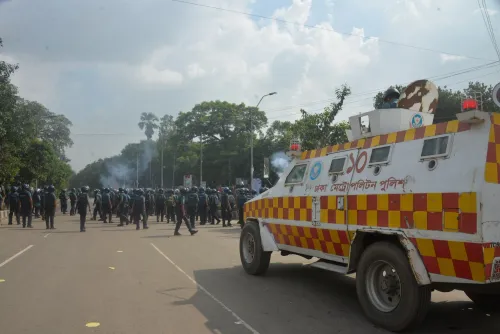Is the Dengue Crisis Escalating in Bangladesh? 2025 Death Toll Reaches 326

Synopsis
Key Takeaways
- Death toll from dengue in Bangladesh hits 326.
- Recent reports indicate an increase of 833 new cases in one day.
- Men constitute 62.4% of the total dengue patients.
- Immediate medical attention is crucial to reduce mortality rates.
- Public awareness and preventive actions are essential to control the outbreak.
Dhaka, Nov 13 (NationPress) The situation regarding the dengue epidemic in Bangladesh continues to deteriorate swiftly, as both infections and fatalities escalate throughout the nation. In the latest 24-hour period, three individuals succumbed to the disease, bringing the total death toll from this mosquito-borne illness to 326, as reported by local media.
During this timeframe, 833 new patients were admitted to hospitals, elevating the cumulative number of dengue cases in 2025 to 82,606, according to data from the Directorate General of Health Services (DGHS), as reported by the United News of Bangladesh (UNB).
The recent fatalities occurred within the Dhaka North City Corporation (1), Dhaka South City Corporation (1), and Rajshahi division (1).
Currently, there are 1,063 patients receiving treatment in Dhaka, while a total of 3,332 have been hospitalized across the country.
According to the DGHS report, 62.4% of this year’s dengue patients are men, while 37.6% are women. Among the fatalities, 53.1% were male and 46.9% were female.
Last year, a total of 575 individuals lost their lives due to dengue in Bangladesh.
On October 9, DGHS Director General Abu Jafor indicated that while the number of dengue cases in 2025 exceeds that of the previous year, the mortality rate is comparatively lower.
During a press conference concerning the ‘Typhoid Vaccination Campaign-2025’ at the Health Ministry, Abu Jafor remarked, "This year has seen a rise in dengue infections compared to last year, but the death rate relative to infections is lower," as reported by UNB.
He emphasized the importance of controlling the breeding of mosquitoes and eliminating their larvae to prevent dengue outbreaks. "It is crucial for individuals to utilize mosquito nets and adopt protective measures, as these are largely personal responsibilities. Neglecting these precautions will make it exceedingly challenging to eradicate dengue," he stated.
He noted, "Our data indicates that over 50% of dengue-related deaths in hospitals occur on the very first day of admission. This implies that patients are seeking medical care too late. We are striving to ensure effective management in hospitals."
Abu Jafor highlighted the significance of early diagnosis, mentioning that dengue, if detected early, could be managed at home with appropriate medical care. He identified lack of awareness, negligence, and delays in seeking medical attention as key factors contributing to the rising dengue mortality rate.









